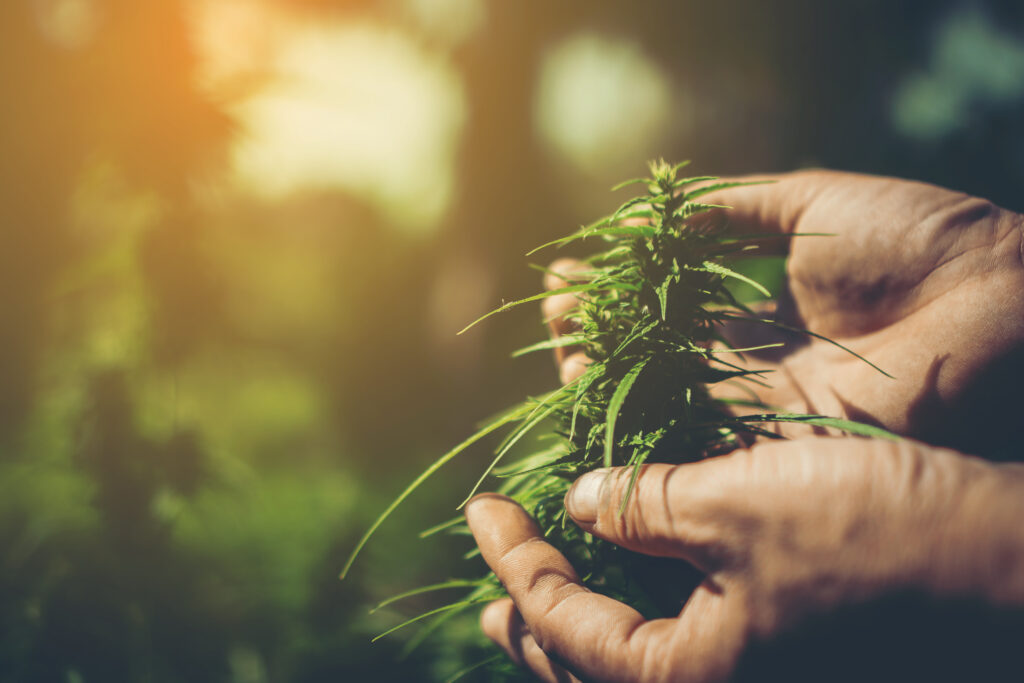
High! No, not Hi. Lets’ talk about the business of hemp for profit. Before that, lets cover some background on what hemp is and how, where, and when a profit can be made. First thing to know is some terminology.
Hemp, marijuana, CBD (cannabidiol), and THC (tetrahydrocannabinol), all come from the cannabis plant. The percentage of THC inside of a plant, determines whether it is hemp, CBD, or marijuana. If the percentage of THC is below 0.3%, the plant is hemp. The amount of CBD is irrelevant in relation to getting high because no matter how much is ingested, it cannot result in a high. It can unfortunately result in nausea, vomiting, and dizziness if too much is consumed; so not highly recommended.
CBD has however been proven to contain medicinal properties and is present in hemp once extracted from the cannabis plant. Its level of potency is relevant in regards to set pricing. Although hemp can assist with anxiety, depression, and sleep, it cannot get a person high. THC is needed to experience a high when indulging in cannabis of any kind. Hemp is derived from seeds of the cannabis plant while CBD comes from the flowers, leaves, and stems.
Like most plants in nature, hemp has many uses. Hemp has been made legal nationwide through the Farm Bill and is deemed as an agricultural product. Hemp for centuries has been used to make clothes, supplements, food, and milk. Hemp as clothing undergoes a process called retting – the long strands of stalk are separated from the bark and woven into a continuous thread. After this, much like thread for sewing with a needle or yarn, the hemp is wound into a bundle and is a usable resource to create fabrics and more. Hemp is also made into food and milk. Hemp milk is created by grinding up hemp seeds and mixing in water. After thoroughly mixing together the ground up seeds and water, a creamy, protein rich beverage results.
Although hemp is legal nationwide, there are a few states that favor it a lot less than others. South Dakota, Idaho, and Mississippi. South Dakota is flat out against its growing and selling because it is still viewed as a schedule 1 drug, and can carry felonies if mass produced. The amount a person is legally allowed to grow and sell in Idaho is so minute, it might as well be illegal. The profit would be insignificant, and not worth pursuing. Mississippi has no clear laws at all. Of the regulations that have been released, none have been official, approved, or agreed upon. There is also no need for a license and no set growing limitations. For those reasons, farmers opt to stay away from it altogether. In every other state, it is legal to grow and sell hemp, although the specifics of the methods vary. There are three states however, that reign high above the rest as the best places to grow: Colorado, New York, and Oregon.
Time to harvest. When planting, it is important to know exactly what is being planted because once the product is produced and extracted, its components, or lack of, play a huge factor in its value. The amount of CBD in the hemp, will be determined by how it is planted and extracted from the cannabis plant. If the harvest is hand planted, it may produce up to 5% more CBD than if the batch was machine harvested. Hemp can be considered as biomass, and when it comes time to sell that biomass, the price will vary based on the concentration of CBD per pound; the more potent the CBD, the more money it will be worth. The hemp needs to be handled carefully, maybe even inspected, to ensure it will be free of contaminants before and after it is planted and sold. Lastly, the dry levels of the hemp matter arguably the most because too much moisture in the hemp will result in an artificial weight. When the hemp comes out more dense than necessary, too much moisture is present, and the same results will not be produced when trying to utilize the hemp for one of its many uses.
There are acres of hemp ready to go. What does one do? Since it is illegal to advertise hemp, or any cannabis derived, tobacco, or nicotine product, figuring out how to advertise and who to sell to, are among the top priorities. It is illegal to advertise hemp products through online marketing, so networking on the ground is imperative. When networking, take note or inquire about the space available in health food stores, yoga studios, gas stations, and coffee shops. Once a business or company agrees to wholesale the product, lock that in. Draft up a thorough contract outlining the percentage cuts for each party, involve attorneys, and be a manufacturer for them, and whoever else for as long as possible.
Hemp can be an incredibly rewarding business. So, go for it, but not in South Dakota, Idaho, or Mississippi!
by Jasmyne Smith
